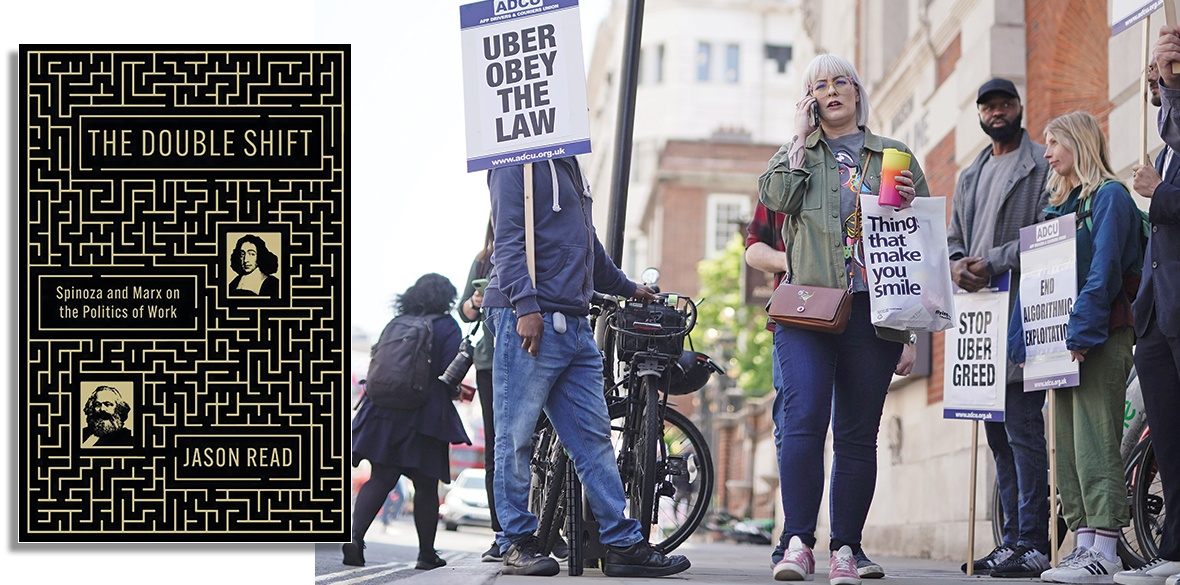This is the last article you can read this month
You can read more article this month
You can read more articles this month
Sorry your limit is up for this month
Reset on:
Please help support the Morning Star by subscribing here
The Double Shift: Spinoza and Marx on the Politics of Work
by Jason Read
Verso, £16.99
THERE are trends in book genres, and trends in political theory are not exempt from this. The reading of Spinoza is an exception to the rule of cringey political theory. Marx himself read Spinosa, as did Louis Althusser, Mark Fisher and Antonio Negri.
His standing as one of the original materialists, his critique of liberals such as Hobbes and Locke and his charge against the dominant thought of religion of the day all make him a satisfactory companion to read alongside Marx.
In recent years more academics have turned towards reading Spinoza as they say that he fills in the gaps Marx left behind. Here we are talking about the gap between ideology and people's behaviour. Such as why do people fetishise “hustle culture” when a lot of work these days does not pay as well as it used to.
Jason Read’s book, The Double Shift: Spinoza and Marx on the Politics of Work, offers a comprehensive examination of contemporary ideologies that make up our ideas around the world of work.
It starts out as a philosophy-heavy book which can be difficult to get through if you are not au fait with philosophical texts or Spinoza.
The introduction delves into theoretical concepts drawn from the works of Marx and Spinoza. It’s later where The Double Shift truly shines in its cultural critique.
Read explores various facets of contemporary culture and also dissects popular films and television series like Fight Club and Better Call Saul to help explore the points of discussion.
He demonstrates how these cultural artifacts reflect societal narratives and ideas surrounding work while also showing the contradictions that go with them. This does help alleviate and clarify the heavy philosophical discussion that takes place throughout the book.
What comes from this exploration is a thought-provoking examination of the dual nature of work in modern society; the belief in work as a means of self fulfilment, an idea pushed further by empty motivational rhetoric and cultural tropes that refuse to subside.
On the other side of things it exposes the harsh reality of exploitation, compulsion, and self-impoverishment that many individuals experience in the workforce in a culture that is toxic to our society’s health and is ever blurring the line between home and work, and our professional and personal lives.
Furthermore, the exploration of the concept of negative solidarity is interesting. Here Read explores why people are not empathetic to people on benefits, or towards people striking.
Instead of showing solidarity against the capitalist system, people complain about others and are in some sense proud of their suffering that they endure under capitalism. This feels like an extension of Mark Fisher’s capitalist realism but more suited for boomers and gen X than millennials.
Much of the book requires careful navigation through a dense theoretical terrain, yet much later, the cultural critique that follows is engaging and insightful, helping the reader to understand what is going on.
That said, at times it does feel that it is missing some real-life examples which could have been included as the theme of work is plentiful with stories. This is very much a theoretical read.
The ideas and analysis that it brings to the fore are worth reading about but the framework that it exists in makes it harder for these ideas to flourish in the reader’s mind. Spinoza is always worth considering when it comes to discussing how humans interact with the ideas around them, and this book adds to the discussion.










